by Miceál O’Hurley
KYIV — President Volodymyr Zelenskii is a man who has often been misjudged, by both his fellow Ukrainians and the world. Having been a renown comedian and television actor, when campaigning for office in 2018, he was often derided as a “clown”. For some, the prospects of his election were described as being somewhere near a “Peony’s chance of blooming in Donetsk in December”. Doubters were proven wrong. Zelenskii was elected President by a healthy margin with more than 73% of the popular vote. His Servant of the People party also swept the elections and became the largest party in the Verkhovna Rada. People who underestimated Zelenskii did so at their peril.
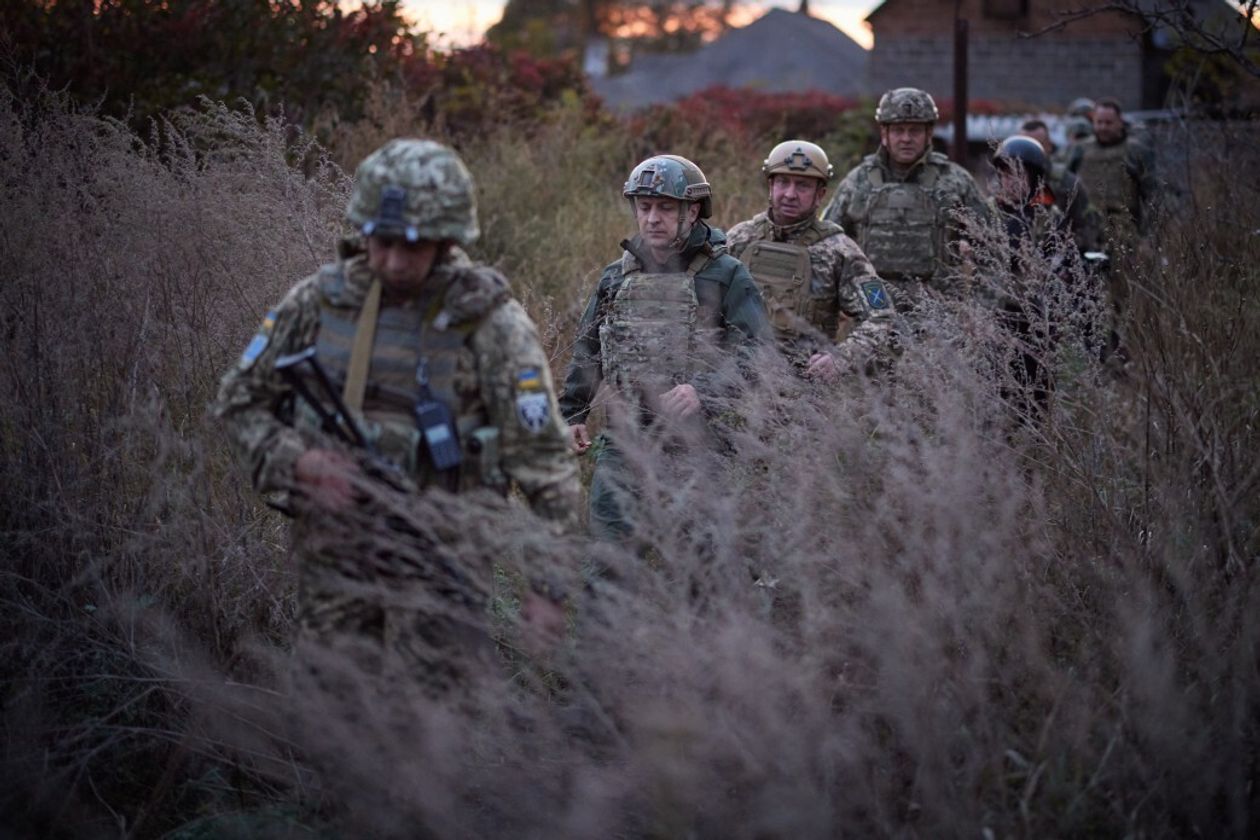
Following Russia’s full-scale invasion of Ukraine 2-years ago this week Zelenskii was discounted as a lightweight. Pundits at home and abroad projected he would fold under the pressure that would bow even the strongest of characters. With a bravado that overshadowed his diminutive stature Zelenskii immediately loomed larger-than-life rallying his country ways previously only attributed to the likes of Grand Duke Sviatoslav, King Danylo, Bohdan Khmelnytsky, Ivan Mazepa and other luminaries of Ukraine’s rich, deep and long history. Few can forget how inspiring it was to see a man standing only 1.7m tall tower above even the bravest of men. When asked if he wanted a flight to evacuate him from Ukraine he proclaimed without hesitation or hubris, “The fight is here; I need ammunition, not a ride.”
Zelenskii went on to rally the world community into a coalition in ways few imagined possible and historically few have achieved. In no small part due to Zelenskii’s leadership the once mighty NATO that had become so docile was inspired to transform itself into a dragon. Germany, known for its forgiving posture of Ostpolotik, became a ferocious tiger, becoming Europe’s new ‘arsenal of democracy’, sending massive amounts of weapons to Ukraine in her dire hour of need and continuing to do so. The Muscovy invasion and Zelenskii’s outreach engendered a warmth of relations that saw the Polish people open its borders, homes, institutions and arsenals to their Ukrainian neighbours. Within weeks, Zelenskii, along with his mighty General Valerii Zaluzhnyi, the soldiers, sailors, air crews and volunteers of Ukraine turned-the-tide and drove back the supposedly superior Muscovy invaders in a rapid series of maneuvers that stunned even the most veteran military experts and political leaders across the globe.
In only weeks Zelenskii emerged a seasoned, authentic leader, proven in democratic elections, tried and tested in war, and a deft Commander-in-Chief whose armies proved themselves beyond expectation on the battlefield. In capitals across the Western world Zelenskii embodied what was best in a democratic leader – responsibility, discipline and sincerity. Zelenskii embodied leadership from the front, sharing the burden and dangers of war with his people and did so even when comfort and security had been offered him. No longer could anyone accuse him of being a mere actor reacting to a director’s stage direction. Zelenskii revealed himself to be the author, director and leading player in the greatest epic of this century – ensuring Ukraine’s future as a bastion of democracy and freedom and being the bulwark of Europe’s security.
What was Zelenskii’s secret to such a profound success and transformation? He knew and understood his audience. Zelenskii grasped what the world would only come to realise – Ukrainians have at their core an innate sense of destiny, built on a history spanning more than a millennia and which compels their bravery even in the face of seemingly insurmountable odds. The Zaporizhian Cossack’s ancient battle cry, “Freedom or Death,” seems to have been emblazoned on the heart of every Ukrainian at heart at birth.
Ukraine had been a stateless nation before – but this generation of Ukrainians were made of a superior mettle with a resolve to keep that from happening again. Despite a severe deficiency in numbers, arms and equipment, a once rag-tag army that came of age under Zaluzhnyi, a man Zelenskii’s hand-picked to lead the Armed Forces of Ukraine in 2021, turned-back the Russian invaders nearly to their line of departure. In doing so, Ukraine extracted a punishing toll on Russian forces that few expected possible and forged a host of heroes that history will never forget.
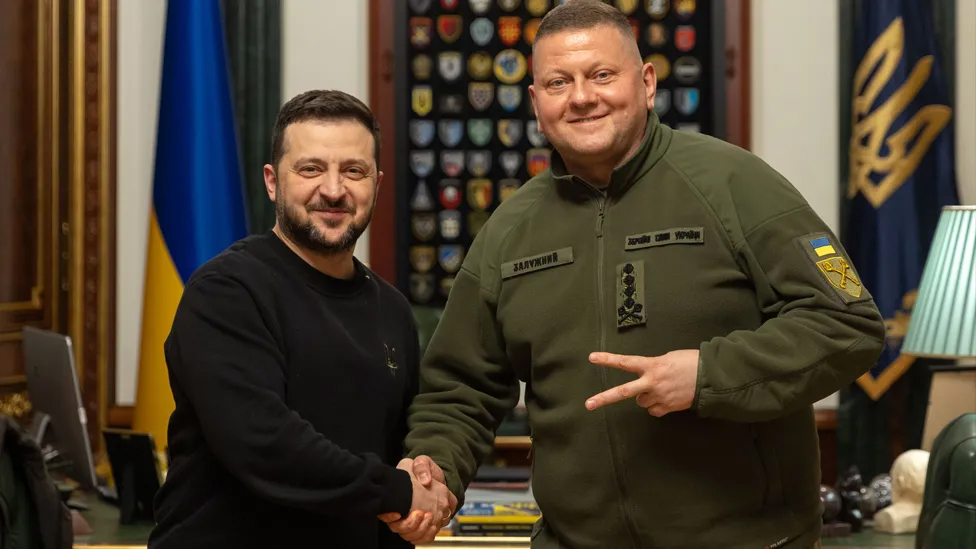
For almost 2-years Zelenskii’s confidence in Zaluzhnyi was repaid with an incredible defense in the face of incredible odds. The recovery of once occupied territories and the liberation of countless settlements was nothing short of astonishing. It was inevitable that Zelenskii’s decision to replace Zaluzhnyi, a man held in the highest regard by his countrymen and women, especially those in uniform, inevitably invited harsh criticism. Complaints of egotism, fears that Zaluzhnyi would arise as a political opponent, or that mere cronyism was driving Zelenskii to make a ‘catastrophic mistake’ arose from certain corners. Many expressed concern that a change of commanders at the top would invite the demise of Ukraine’s momentum in holding the line. Some have even speculated the fall of Avdiivka last week was proof of their prophecy. They would be wrong on both counts.
A less emotional evaluation of these events would serve to demonstrate the wisdom of the change. It took more than 18-months before Russian forces were able to make one of their few advances as seen over the last several days. Intelligence estimates indicate the Muscovy have been so depleted they may not be able to exploit any gains possibly giving Ukraine time to re-arm with the assistance of their many allies. The assertion that the war had reached a “stalemate” demanded change meant Zelenskii’s resolve the situation demanded a “new look at the battlefield” was essential. History will prove that those who opposed the change in military commanders at this time lacked political, martial and historical perspective and were ignoring reality.
Zelenskii, a surprisingly well-read man, knew of another President, fighting for the survival of his nation 160-years previously, on a different continent faced the same issue. U.S. President Abraham Lincoln, a man now revered for his wisdom was in his day derided for his poor judgment owing to a lack of progress in defeating the Confederate forces that sought to destroy the Union Army of the American Republic. The Union army’s ground operations had ground to a halt. Southern cities like St. Petersburg and Vicksburg had become citadels of trench warfare, misery and stalemate. A “new look” at the battlefield was needed as was a change of command at the top.
The problem Lincoln faced was the political and social popularity of the commander of the Union army – General George B. McLellan. The soldiers of the Army of the Republic loved “Little Mac,” as he was affectionately called by his soldiers. Although they weren’t winning the war their cult-of-personality devotion to him was unwavering. He had taken volunteers from every state in the Union and quickly whipped them into an effective fighting force. Exhausted, often wet, muddy and bloodied they faced some of the most fierce fighting of the age, endured incredible hardships and experienced punishing casualties of sometimes exceeding 30,000 dead in a single day. Still, the Union army loved and swore by McLellan. Boys who left farms, shops, factories and universities credited McLellan for turning them into men. Their mothers, wives and children therefore loved him. The parallels between McLellan and Zaluzhnyi on this score are strong though Zaluzhnyi realised the type of victories that eluded McLellan.
The problem for Lincoln and America was little changed on the battlefield and a war of attrition was too punishing for the nation to endure. 2-years into the war Lincoln knew the nation needed progress on the battlefield before calls of, “…cede land to the Confederates for peace,” or, “…the Confederates have cotton the world needs and trade will only strengthen the enemy unless there is victory” may have pushed the nascent American Republic to dissolve itself.
The American Civil War which began with the very same troop movements classically employed by the 19th century’s great armies of Europe – tactics and weapons which hadn’t changed in hundreds of years. The Union Army quickly ran up against the reality that modern cannon and long-bore rifles, even Iron Clad warships and Gatling guns capable of spewing thousands of rounds per minute, demanded a new approach to the evolving battlefield. Ukraine faced this to with the evolution of aerial drone warfare, naval drones, hypersonic weapons as well as the age-old use of land mines. The American Civil War and the Russia’s full scale invasion of Ukraine both suffered from the need for new approaches.
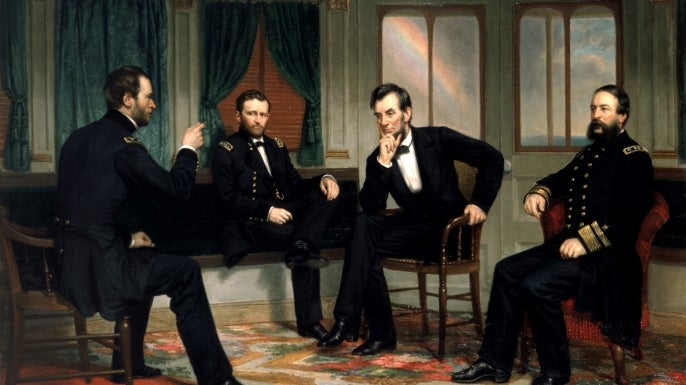
Lincoln relieved McLellan and eventually appointed General Ulysses S. Grant to replace him. As the American historian Shelby Foote observed, “McLellan did what he did. Others did what they did, but it took Grant to do what he did to bring the war to victory”. Newspapers from New York to London lambasted Lincoln for his decision. There were calls for Lincoln to be deposed. He had risked all-out conflict with the Army and spent significant political capital for his decision. Still, he knew it was necessary.
The Union army needed a commander who looked at the battlefield differently, grasped how different tactics were required, embraced the limitations and advantages of available logistical capacity, and was willing to subordinate himself unquestioningly to civilian political leadership. It had always been the fear of Republics and democracies from Rome to the present that generals might threaten democratic advancement and stability. Obeying their civilian commanders was the first duty of every patriot. Still, changing commanders risky but necessary.
Lincoln found in Grant a proven fighter. He was accused of being a drunkard, lazy, lacking in intelligence and had every insult of character hurled at time. Grant’s critics cited stories of his having been seen openly weeping under a tree at the loss of 7,000 Union soldiers in only 10-minutes following a failed charge on Confederate positions on the first day of the Battle of Cold Harbor. Lincoln was well acquainted with that story – it was true. Grant had not cried out of fear or failure but compassion and a sense of humanity for those who sacrificed their lives for their nation. Lincoln insight was to perceive that on the morning of the second day of Cold Harbor Grant was no longer crying and by the time the battle ended the Confederate army had fled in defeat. Grant had broken the cycle of the Union army retreating after suffering high losses and pressed the battle to his advantage as he was to do again and again until the Confederate General Robert E. Lee surrendered unconditionally at Appomattox Court House. Lincoln’s gamble in changing commanders mid-war was instrumental in producing a victory and saving the American Republic.
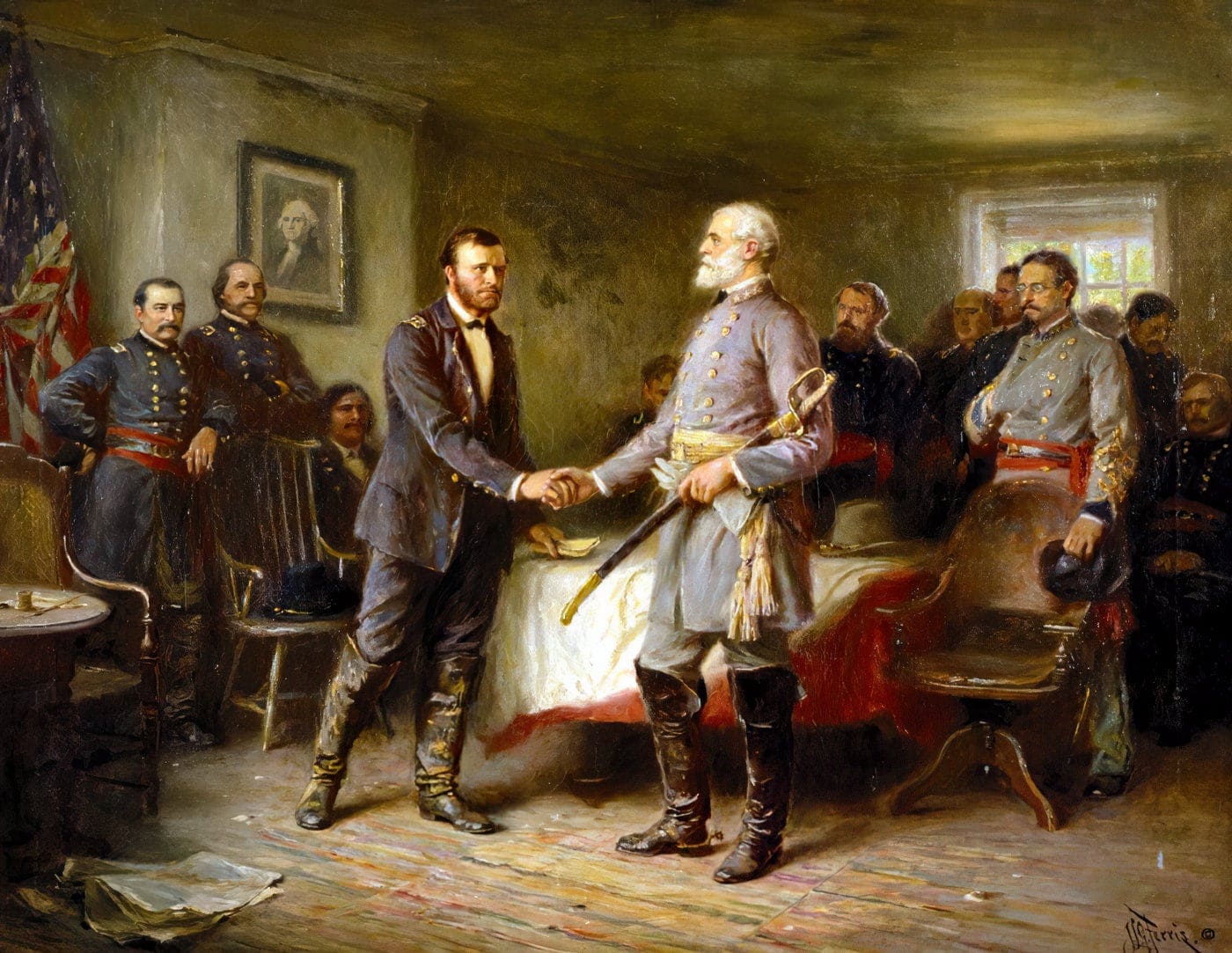
Grant’s tenure had not always been an easy or popular one. Though credited with victories the high casualty rates his men experienced were astounding. The Battle of Shiloh in 1862 saw more than 13,047 Union Army casualties. Some of the wives of Grant’s soldiers accused him of being a “butcher.” Their husbands disagreed. They realised the survival of their Republic was more precious than their lives and they fought both willingly and bravely under his command. Upon victory Grant and his Grand Army of the Republic would be lionised by all, even if the pain of personal lost was carried in the bosom of too many families that experienced loss. Perspective is often difficult in the midst of change and conflict.
Lincoln and Zelenskii faced the same dilemmas at strikingly similar points of their wars. Zelenskii seems to have realised the same indelible truth as did Lincoln – healthy democracies are not built on a single person; and, as Ecclesiastes teaches, “For everything there is a season, and a time for every matter under heaven”.
For the good of their nations both men exercised a rare willingness to expend personal political capital to make the necessary albeit difficult decision to change the commanders of their armies at a crucial time in their national struggles for survival. Zelenskii is now paying the same high price for his decision as did Lincoln. For Lincoln the gamble worked. The Union Army prevailed on the battlefield and the American Republic survived and thrives to this day. The outcome of Zelenskii’s display of moral courage remains uncertain. There is good reason to believe it too will work, however.
Critics of Zelenskii’s decision to change commanders would be well served by contextualising the change of leadership. Zaluzhnyi will forever be accounted a giant in the annals of Ukrainian history – and quite deservedly so. He was the right man for the moment when Zelenskii appointed him. Russians might be swilling vodka in a Lviv square today had he not been in charge 2-years ago. That Ukrainians are enjoying coffee in Kharkiv today is in large part testament to Zaluzhnyi’s generalship. Zaluzhnyi was loved by his soldiers, admired by his alliance partners and popular with the people. Ukraine owed him a debt of gratitude and Zelenskii was right to honour him as a ‘Hero of Ukraine’.
There are 2-types of generals – those who have been replaced and those who are about to be replaced. Military leadership is not about duration – it is about mission accomplishment. It is irrefutable that Zaluzhnyi accomplished his mission and Ukraine’s existence today, capable of continuing the fight, is proof positive did his duty in the highest tradition of military excellence.
Now it is time for another commander. The battlefield, external political commitments, technology and logistics have all changed over the past 2-years. Critics claim change is foolish. It is worth remembering that during the American Civil War Confederate General Robert E. Lee overheard his officers deriding Lincoln’s decision to replace McLellan. Lee reproached them, “Be careful, gentlemen. We understood General McLellan and that was to our advantage. Lincoln may have found a general we don’t understand and now we will pay a heavy price”. The Confederacy lost without ever having found a way to counter Grant.
Change is often not only necessary, but good if not imperative.

General Oleksandr Syrskyi is a proven battlefield commander. Admittedly, he does not have the same panache and inscrutable smile that made his predecessor the darling of the media. Syrskyi’s attributes are his martial skills, knowledge and experience. He has displayed exceptional leadership during the successful defense of Kyiv and liberation of Bucha, Irpin and countless other settlements. Syrskyi has proven he is the ‘real deal’.
Syrskyi’s willingness to take on the defense of Bakhmut marked him as a disciplined fighter and a genuine leader capable of facing-down adversity. While the sacrifices made in Donbas by Ukrainians have been painful, Syrskyi’s ability to lead the Armed Forces of Ukriane to destroy inordinate numbers of the enemy and their equipment bought Ukraine critical time in what will prove to be a long war. He has demonstrated he is a strategic thinker and tactical operator capable of marrying policy and operations.
Following his masterful defense of Kyiv following the full-invasion of Ukraine and his successful counteroffensive in Kharkiv, Syrskyi’s reputation suffered amongst the families of the fallen in those horrifically punishing battlefields known as Bakhmut and Avdiivka. A sober, and less passionate analysis will prove those sacrifices to been critical in preserving Ukraine’s path to an inevitable victory. Critics accuse Syrskyi of being ill-disciplined when it came to conserving ammunition and expending too many resources in Bakhmut and Avdiivka. This is misplaced. Syrskyi, like all battlefield commanders, had to rely on his political masters to deliver the logistical support promised by industry and allies. If Ukraine is short on munitions, in particular artillery, it is the product of the allies’ failure to deliver upon solemn promises.
What is indisputable is that the punishment meted-out to the enemy in Bakhmut and Avdiivka forced the Muscovy to expend the lion’s share of their armour, artillery and personnel. Syrskyi deserves credit for his role in forcing the Muscovy to waste their resources to the extent that they no longer have the wherewithal to rapidly surge across Ukraine once again as they did in 2022. Ukraine may have conducted a tactical withdrawal from Avdiivka but their strategy and execution have made Ukraine defendable. Ukraine can rebound once the aid now being rushed to the battlefield by its European partners arrives.
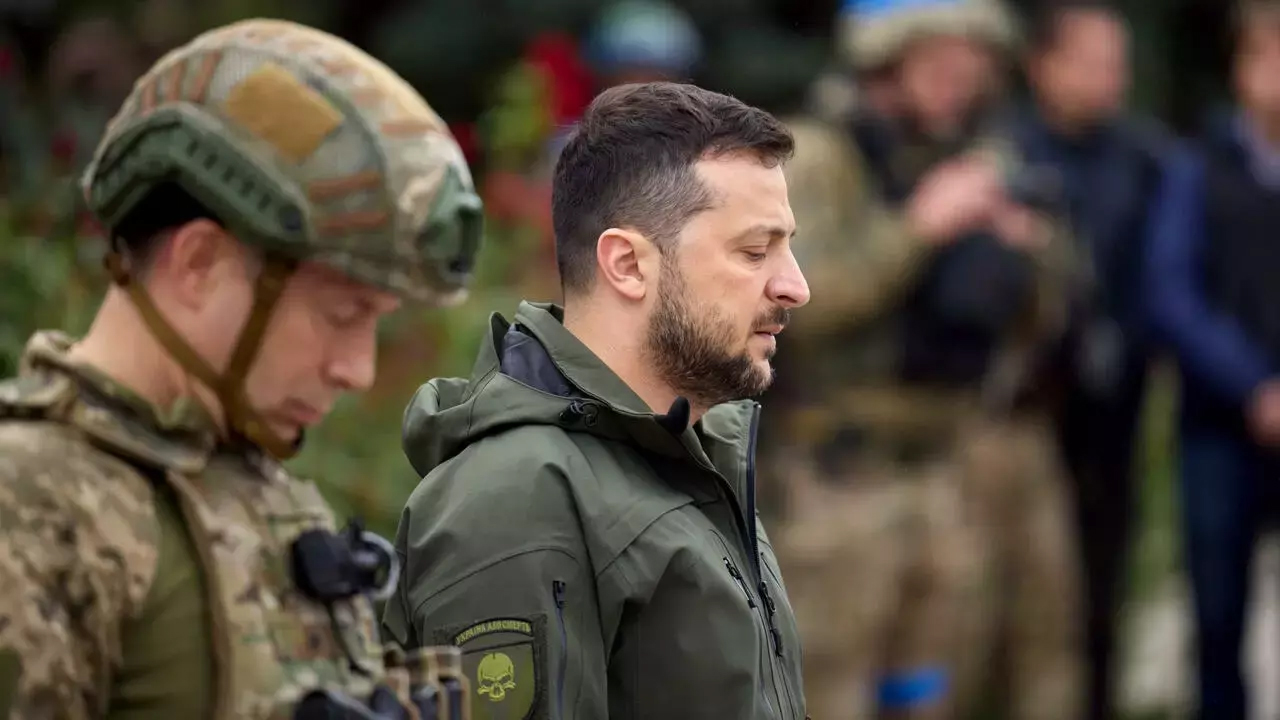
Only time will tell if Zelenskii’s decision to promote Syrskiy works out. What is clear, however, is that he chose a disciplined, intelligent, proven military leader willing to make the hard choices now so Ukraine can realise victory tomorrow. Now is Syrskyi’s time. Victories will surely follow, maybe not today, or tomorrow, but soon and for good.
Zelenskii must be credited with understanding something profound that few are discussing but which is Ukraine’s secret weapon – the nation has reformed so significantly that it is today that its democratic ethos is so firmly entrenched in her people their most senior political leader could trust them and this enabled him to make such a significant change. Replacing a beloved, heroic figure like Zaluzhnyi for the greater good of the nation would destablise a lesser nation. Zelenskii grasped two realised – Zaluzhnyi did not condition leadership being centred on himself but rather developed subordinates to lead in his absence; and, the nation had matured as a reformed democracy and would accept the change of command.
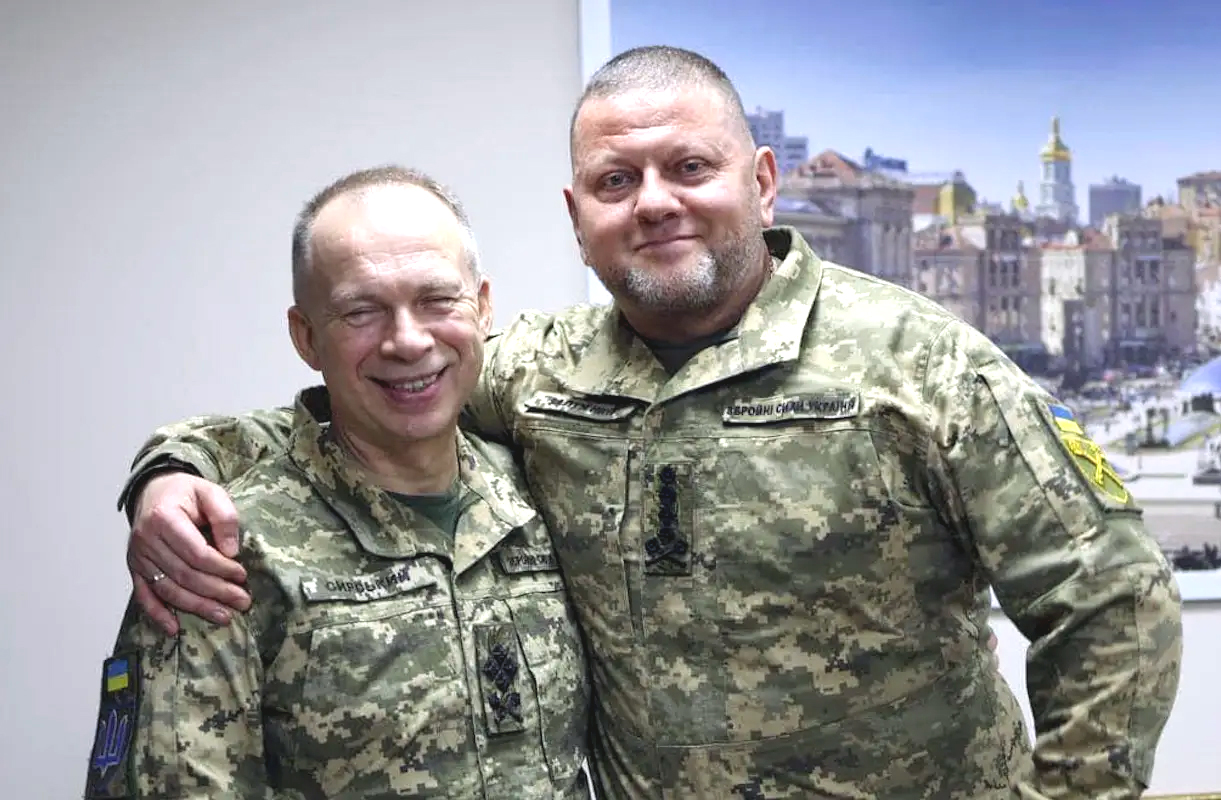
The world must acknowledge and congratulate Ukrainians for their devotion to democracy. When the West truly realises the significance of the smooth, democratic transition of command from Zaluzhnyi to Syrskyi on the orders of President Zelenskii they will rest more confident their investment in Ukraine was incredibly worthwhile. Another exemplification of Ukraine’s embrace of modern democracy rests in the example shown by Zaluzhnyi. His stature as an inordinately popular General meant he could have turned matters to his personal advantage as happens so often across the globe. Instead, Zaluzhnyi demonstrated he is cut from the cloth of Cincinnatus. Lucius Quinctius Cincinnatus, a proven general so beloved by all Rome he was twice entrusted with the unlimited powers of Dictator, chose to embrace the democratic will of his Republic and relinquished is powers to the elected Consul of Rome, returning to his farm as a simple citizen. History will record that Zaluzhnyi was not only a genuine general of generals and leader of women and men but he was a fervent democrat, patriot and a true servant of his nation who put his country’s needs ahead of any personal ambitions.
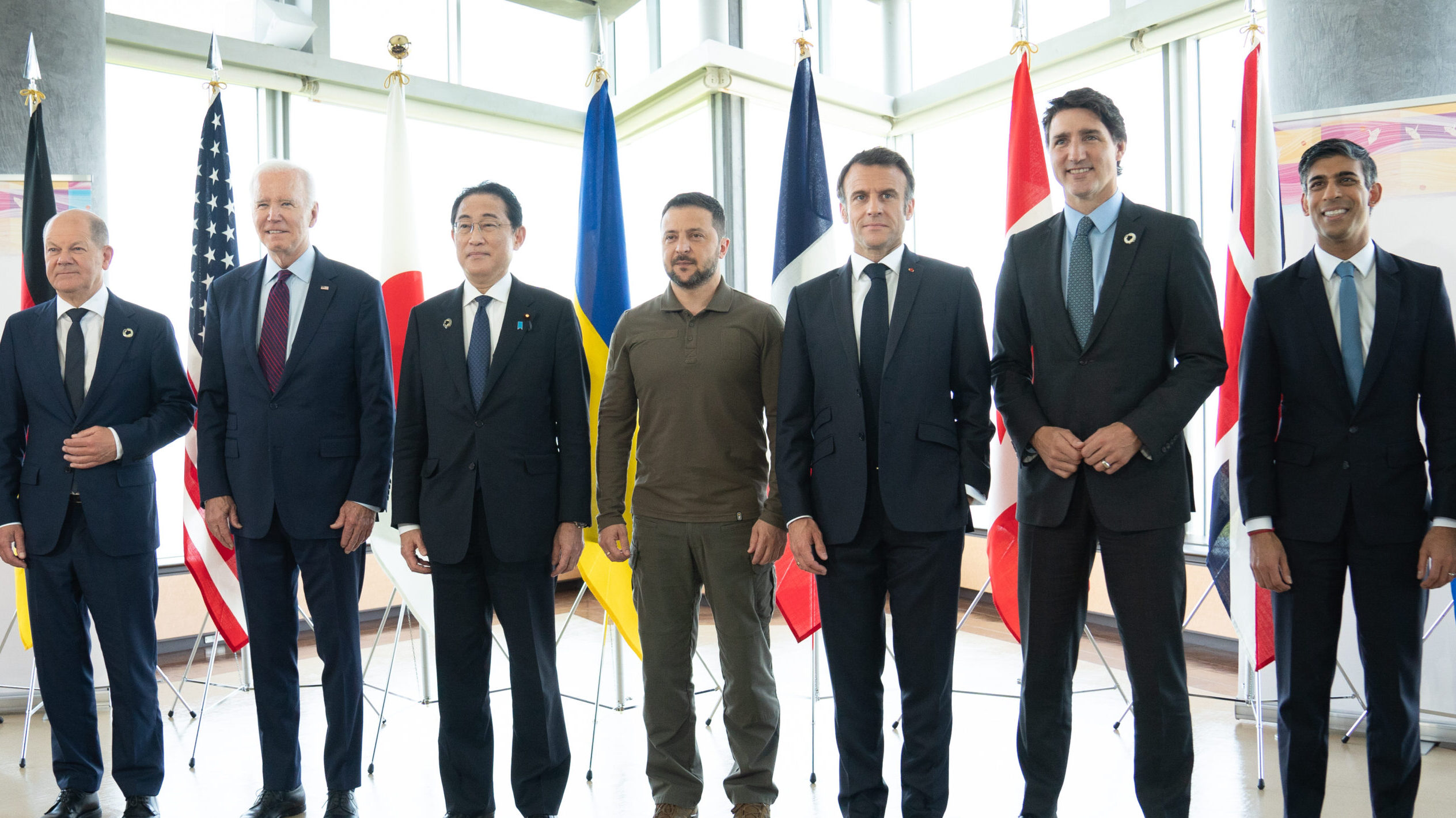
As for Zelenskii? Few countries in this age have a leader so confident in the democratic ethos of their people to risk their personal popularity and position by doing what they think is right. He has shown he has that rare political asset – moral courage. Changing generals worked for Lincoln. In time it may work for Zelenskii. Whatever the outcome, he is to be congratulated for his exercise of leadership even if the wisdom of his decision has yet to be proven. After all, if outcomes were certain courage would not be a virtue. What is critical is that Zelenskii trusted in the stability of Ukraine’s now mature and reformed democracy and has proven that Ukraine is genuinely European and deserves its ascendency to the European Union and NATO.
The war has not been lost simply because Avdiivka fell. There are many battles and sacrifices ahead for Ukraine. The nation can only hope its allies appreciate how reformed and robust a democracy is Ukraine. By sheer bravery, Ukrainian women and men have been the pivotal difference in the defense of their nation and the security of Europe. Armed with little more than their audacity, their faith and the knowledge they are the inheritors of an incredible history worth preserving. Ukraine has refused to be co-opted into Vladimir Putin’s warped sense of history and re-incorporated into his ambition for a new Russian Empire. The world can only wonder what Ukraine might do to bring the war to a satisfactory and just conclusion with the provision of the arms, munitions, weapons systems and aircraft the West has promised but have yet to deliver. More than wonder, the West can and must act generously and swiftly for Ukraine’s sake and for their own security and interests.
















































